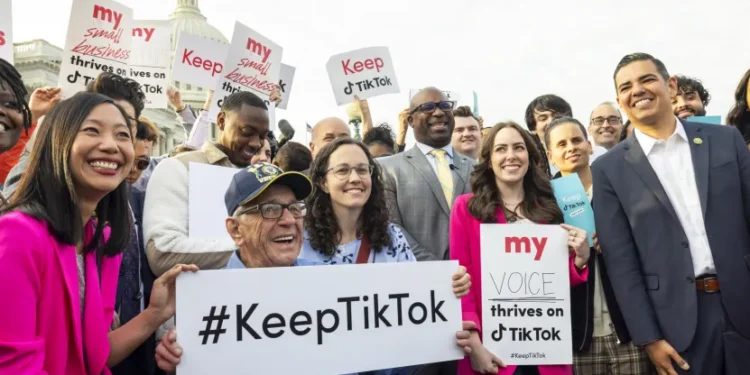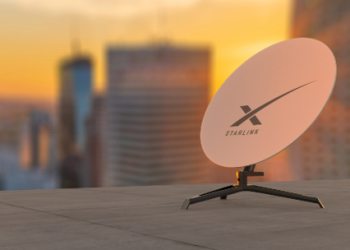Tiktok and its Chinese parent company, ByteDance Ltd, have boldly filed a lawsuit challenging a new American law that would ban the popular video-sharing app in the U.S.
The U.S. law states that unless it’s sold to an approved buyer, it unfairly singles out the platform and is an unprecedented attack on free speech.
According to Bloomberg’s report, TikTok argues in its legal proceedings that the law not only poses a substantial risk to freedom of speech but also has the potential to adversely affect content creators. This is particularly concerning for small business owners who heavily depend on the platform for economic prospects.
READ ALSO: LemFi Suspends Ghana Operations, Here’s Why
The company claims to have dedicated more than $1.5 billion towards creating a distinct entity for its activities in the United States and has consented to supervision by the American technology powerhouse, Oracle Corp.
In a filing submitted to the US Court of Appeals in the District of Columbia, TikTok asserted;
For the first time in history, Congress has enacted a law that subjects a single, named speech platform to a permanent, nationwide ban, and bars every American from participating in a unique online community with more than 1 billion people worldwide
What Led To The Confrontation…
The legal dispute arose after President Joe Biden signed a Ukraine-Israel aid package, which incorporates the TikTok provision.
Despite lobbying efforts led by TikTok Chief Executive Officer, Shou Chew, US lawmakers remain concerned about potential national security risks associated with China accessing user data and disseminating propaganda to approximately 170 million Americans, representing nearly half of the US population.
TikTok’s legal complaint highlights numerous alleged violations and breaches by the US government, encompassing encroachments upon the First Amendment, restrictions on laws aimed at particular factions, transgressions of the equal protection clause within the Fifth Amendment, and unconstitutional seizures.
The company warns that the enactment of the law will inevitably lead to the shutdown of TikTok by January 19, 2025, thereby silencing the 170 million Americans who utilize the platform for communication in unique and irreplaceable ways.
Free Speech Groups Lends Their Support To TikTok
“Restricting citizens’ access to media from abroad is a practice that has long been associated with repressive regimes, so it’s sad and alarming to see our government going down this road. TikTok’s challenge to the ban is important, and we expect it to succeed,” Jameel Jaffer, executive director of the Knight First Amendment Institute at Columbia University, said in a statement.
You Should Also Know…
The ongoing legal conflict surrounding TikTok brings to light the complex interaction between concerns over national security, safeguarding freedom of expression, and the regulatory supervision of digital platforms in an ever more interconnected global environment.
In an earlier development, the Italian Competition Authority levied a €10 million fine against TikTok for its failure to safeguard users from a harmful online challenge known as the French Scar Challenge, as reported by Nairametrics.
The enforcement measure took place during continuous attempts by US legislators to force the detachment of TikTok from its Chinese parent company, Bytedance, with the possibility of banning the social media platform.
The Italian regulatory body criticized TikTok for its inadequate implementation of measures to monitor and regulate content uploaded to the platform, particularly content that poses potential risks to the safety of minors and other vulnerable individuals.
Also, the US government and more than half of US states have restricted TikTok from government devices, however, reflecting the authority that governments have to manage their property.
Internationally, TikTok has been banned on government devices in Canada, the United Kingdom, and at the European Commission. The app has been subject to a complete ban in the entire country of India since 2020.
In addition, there were circulating reports indicating that ByteDance was considering the option of selling a majority stake in TikTok’s US operations to a non-technology entity like Walmart. However, it is worth noting that ByteDance denied these claims promptly, while also clarifying that the platform’s recommendation algorithm would not be included in any potential deal.
The valuation of TikTok’s global business remains a subject of uncertainty, with estimates ranging widely from $20 billion to $100 billion.
The uncertainty highlights the difficulties in precisely evaluating the platform’s actual worth, particularly in contrast to ByteDance’s projected valuation of $200 billion.










